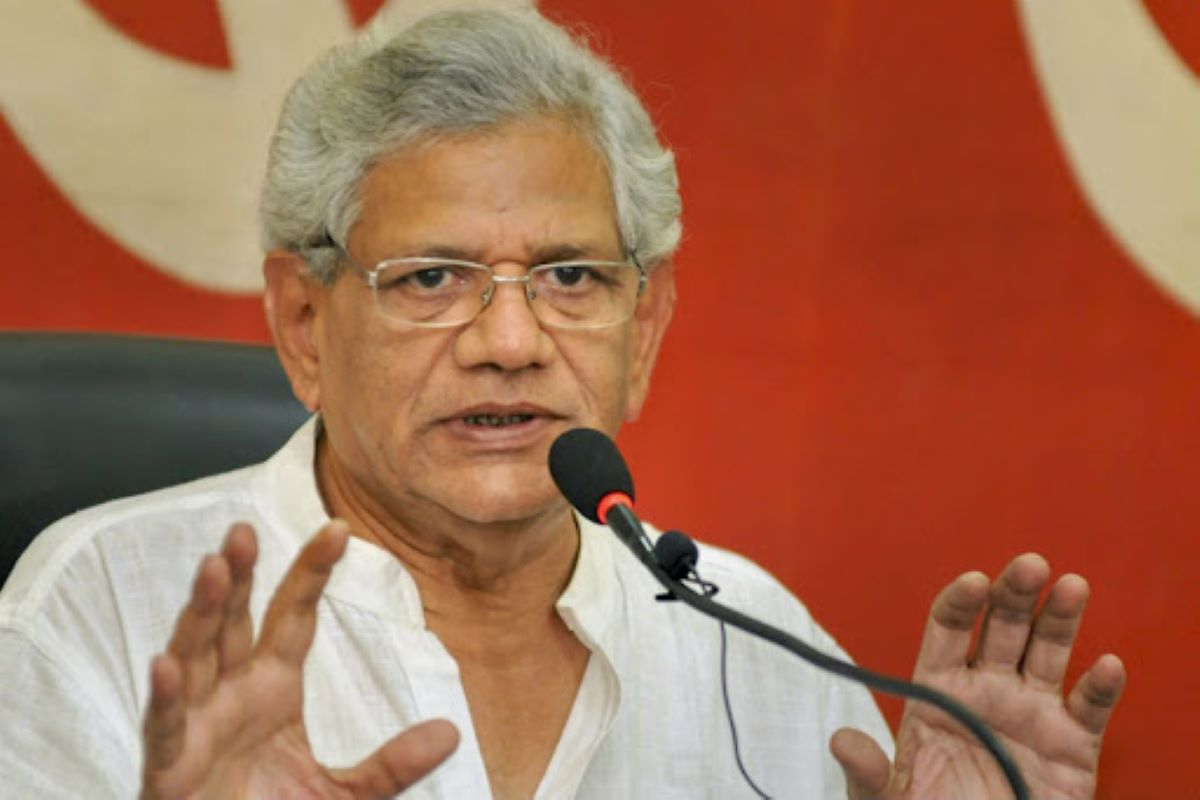With the passing away of Sitaram Yechury, India has lost a conscientious politician and revolutionary. He belonged to the first crop of free India’s bright youngsters who carried the dream of a better India, a socialist India which would serve the interests of the many and not just the few. Coming from a prosperous background, topping the All-India CBSE higher secondary exam, excelling at the University of Delhi and the Jawaharlal Nehru University (JNU), Sitaram opted for a life of struggle.
He joined the Communist Party of India (Marxist), (CPIM’s) student front, and the Student Federation of India (SFI) whilst studying at JNU. He became the President of the Jawaharlal Nehru University Student’s Union. During the Emergency, he went underground to evade arrest. This was the time when his father was admitted to a hospital in Delhi. Instead of capitulating and being with the family, Sitaram continued doing underground political work. He used to visit his father at the hospital in disguise at night. Earlier his father, a senior government engineer, had sensed Sitaram’s radical proclivities and appointed his uncle, a senior bureaucrat, to dissuade him from communist politics.
Advertisement
When the wave of Sitaram’s eternal revolutionary romance collided with the pragmatic shoals of his bureaucrat uncle, the latter called his father and asked him to take him away before he convinced him to resign and join the communist movement! Another interesting event that highlights Sitaram’s internationalism unfolded on the eve of the Iranian revolution. The Shah of Iran was facing massive protests at the hands of students and workers. A bunch of radical Iranian students who were then studying at JNU would regularly go to the Iranian embassy in Delhi for protests and demonstrations.
At one point, the Iranian government recommended their deportation to Iran. Sitaram and his comrades sensed that deportation would mean the physical annihilation of their friends. As the Home Ministry sprang into action, Sitaram and his comrades protected their Iranian friends and did not allow them to be deported to Iran. The famous photograph of Sitaram reading out a charter to thenPrime Minister Indira Gandhi would be remembered as one of the proudest moments of radical student politics’ halcyon days. In today’s era of Indian politics, the re-enactment of a similar moment is unthinkable.
In 1984, Sitaram was elected to the Central Committee of the CPIM and subsequently to the Politburo in 1992. By his own admission, he remained the youngest member of the Politburo for over two decades. Soon he became part of the negotiations in the making and unmaking of the United Front governments of 1996 and 1998. After the Vajpayee interlude, Sitaram became a prominent voice when the Left supported the Manmohan Singh-led United Progressive Alliance (UPA). He was one of the architects of the common minimum programme which included crucial legislations such as the Right to Information, the National Rural Employment Guarantee Scheme and the Forest Rights Act.
The passing of the latter was most crucial for the poor tribals. While in Parliament, Sitaram and his colleagues from the Left parties challenged the delaying tactics of antitribal lobbies and mafias masquerading as conservationists. The latter had wanted an inordinate delay in the notification of Rules (without which no Act could be implemented) till the tribals in critical wildlife habitats could be evicted.
Sitaram and his comrades took all steps; leading an all-party delegation to the Prime Minister, walkouts from Parliament, meetings and ground mobilization of tribals; to combat the cunning of the antitribal lobbyists. Sitaram’s column ‘Left Hand Drive’ for the Hindustan Times always provided a comprehensive left-wing analysis of important national and international issues. I am sure that many youngsters who grew up in the mid-2000s (I would include myself in the list) developed their first instincts of ‘leftism’ and batted Left through reading those columns. In 2015, when Sitaram was elected as the General Secretary of the CPIM, he was a South Indian, nonturbaned and clean-shaven heir of his political guru Harkishan Singh Surjeet also famous as London Tod Singh.
Like the latter, Sitaram had the necessary coalition-building skills. His ability to talk to adversaries and opponents and take them together against bigger threats was commendable. He had friends and admirers across the political spectrum. The dreary sombreness that is often the hallmark of communist politicians evaded Sitaram’s persona. His broad smile almost covered his face, and his gigantic palms often clasped and clapped at the slightest presence of humour. I never thought that I would write an obituary of Sitaram Yechury. Yet here I am. Writing it with a heavy heart.
Silently shedding a tear or two. The message of the life and work of Yechury, whether one agrees with his ideology or not, is that there are far greater things in one’s life other than one’s family and bank balance. And it is the pursuit of those higher goals that we should dedicate our lives to.
(The writer is a PhD scholar at the University of Connecticut.)











